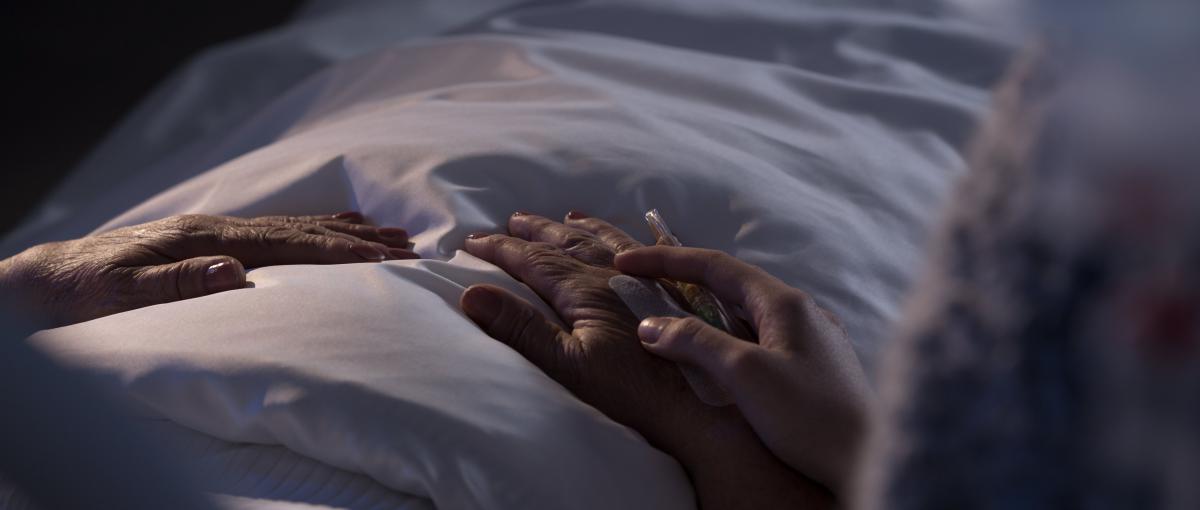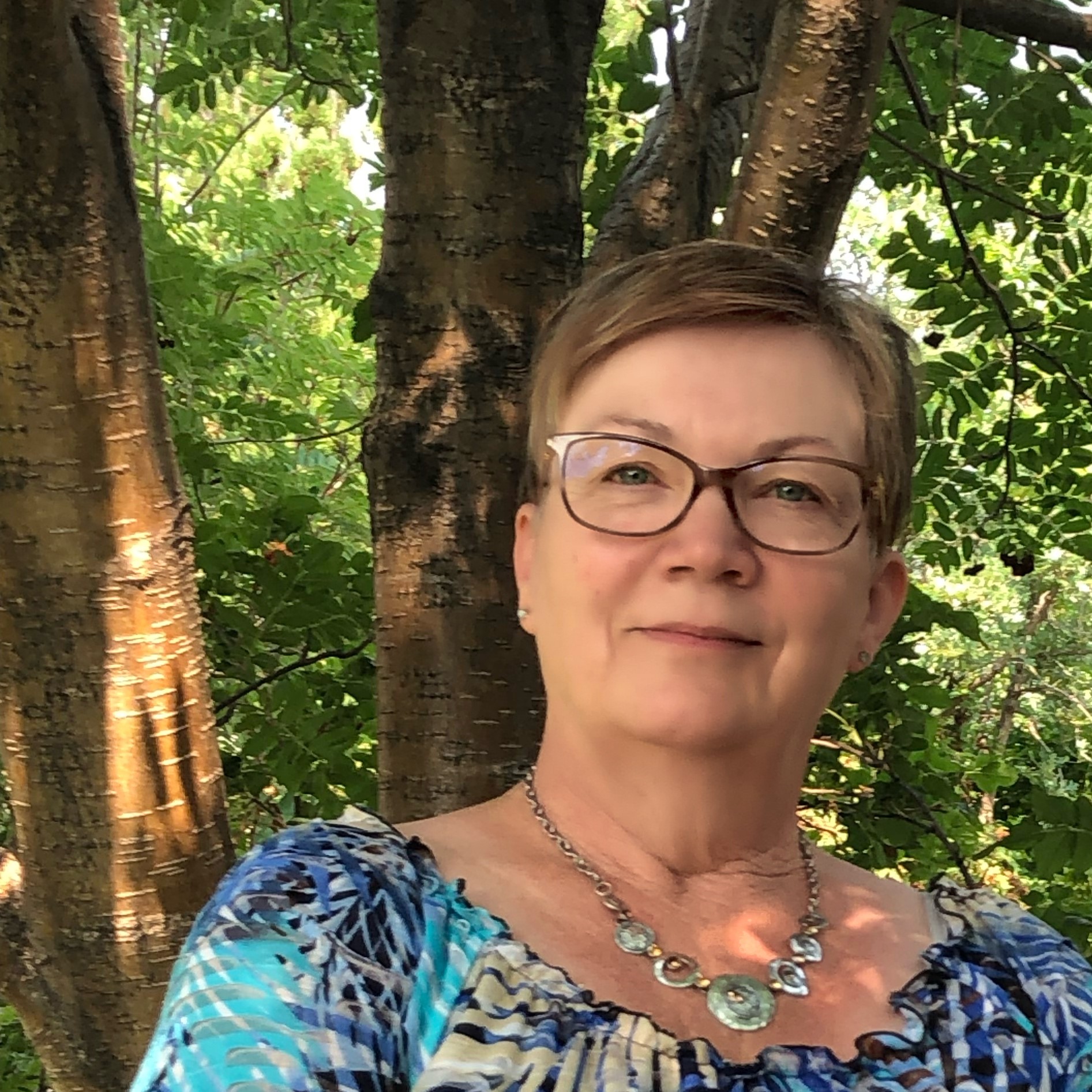A helping hand for final journeys

August 3, 2023
By Ben Freeland, communications advisor, Covenant Health
When her mother, Audrey, was living with dementia and in continuing care at Youville Home in St. Albert, Cindy Trueman turned to an end-of-life doula, Shelley Blair, to be her mother’s companion. Shelley visited Audrey twice a week for more than two years before she passed away in January 2022.
“Shelley has a gift; she was a godsend to us,” says Cindy. “She provided a level of engagement that we as a family couldn’t.”
An end-of-life doula, also known as a “death midwife,” is a person who assists in the dying process in the same way that a regular doula or midwife assists with the birth of a baby. While death doulas are not part of a regulated health profession or formal members of any care team, some families, like Cindy’s, choose to hire them for additional companionship for their loved ones at end of life.
As an end-of-life doula, Shelley may visit her clients wherever they are living, such as in hospices, palliative care wards and family homes. The job can encompass almost every aspect of the end-of-life process, says Shelley, who is also a public panel member for the Palliative Care Public Awareness project led by Covenant Health’s Palliative Institute.
“You simply meet people where they’re at and follow their lead,” says Shelley. “Some people may need you to sit vigil with them. Sometimes you’re helping people navigate funeral planning. Sometimes you’re working directly with the person who’s dying, helping them prepare for their own death. You help people figure out how they want to die, help them arrange their own end-of-life parties. Death doulas help people make all these things happen.”

Shelley Blair is an end-of-life doula.
Shelley notes that many of the people she sees are afraid of death. In such cases, she finds that in the quiet times when she’s sitting with a client, she can get them to share their fears and eventually to open themselves to the possibility that everything will be OK. The key to this, she says, is being calm and comfortable herself, which communicates to the client that it’s safe for them to feel that way. Embracing the subject of death, she adds, is crucial to living a fulfilled life ― right up until the end.
“Death is one of the most powerful experiences we ever encounter,” Shelley says.
Formal research into the work of end-of-life doulas is scarce, but evidence shows it benefits patients and families by filling in gaps in care and providing continuity of care and consistent support through transitions between hospitalization, home care and hospice care, and from curative to palliative care. The flexibility of their role enables doulas to meet a wide variety of needs, ranging from emotional connection to spiritual guidance and practical support.
For Cindy’s mother, having the assistance of a death doula had a significant impact.
“Shelley connected profoundly with Mom right from their very first meeting,” says Cindy. “She was able to intuitively engage her in activities and conversations. I don’t know what all their conversations were about, but she talked to my mom about dying and made sure she was OK. They made Christmas cards together within a week of meeting each other. She brought painting, colouring books, beads and crafts for my mother to do. She sang and played music with her.”
Thanks to Shelley, Audrey had steady, caring companionship throughout her final years of life.
“My mom’s life was incredibly richer for having Shelley in it,” says Cindy. “Every person with dementia needs an angel like her.”